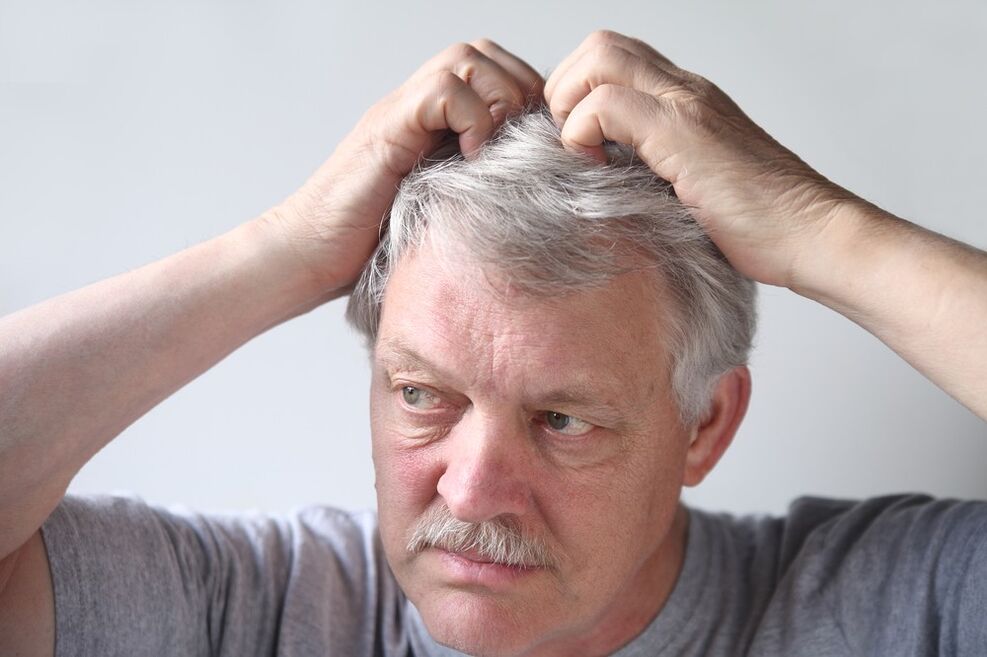
It can occur at any age, but the first symptoms usually appear gradually between the ages of 15-35.
The infection can be very annoying due to the ugly spots all over the body, which can cause discomfort and sometimes even pain. Manifestations can be of varying degrees: from a few dandruff-like spots to large areas of rash. Psoriasis often develops on the elbows, knees, waist and head. Holes or other irregularities may appear on the nails. The rash can manifest in many ways, including pustules, skin tears, itching, and scratches. Psoriasis is not contagious.
Signs and symptoms
- Dry red spots on the skin covered with silver coins.
- Small smooth spots all over the body (more common in children).
- Swollen and tight gardens.
Warning signs and symptoms
Redness and hair loss all over the skin.
Psoriasis is a common skin disease that affects the life cycle of cells. It usually takes about a month for new cells to form in the lower layers of the skin. Abroad, they die and break up into smaller particles. With psoriasis, the whole process takes place within a few days: the cells die quickly and the spots, covered with a thick crust without hair, spread on the skin.
In one in 10 cases, arthritis is accompanied by psoriasis. For most of these people, the effects of psoriatic arthritis are minimal. There is some pain in the affected joints, but it has no effect on the health of the whole organism. In rare cases, this pain limits mobility, similar to that experienced with rheumatoid arthritis.
Reasons
In psoriasis, skin cells multiply rapidly to form a thicker, less sticky layer of skin. This usually does not happen until treatment is intervened.
Factors that can cause psoriasis:
- Systemic diseases (eg, tonsillitis).
- Immune system response to disease.
- Skin damage.
- Reaction to drugs or vaccines.
- Stress.
- Excessive alcohol consumption.
- Environmental factors such as direct contact with sunlight or chemicals (disinfectants, dyes).
Doctors claim that psoriasis is a disease caused by many factors and is hereditary. However, scientists have not yet fully understood how this is related to the genetic apparatus.
Diagnostics
The diagnosis of psoriasis is usually made on the basis of a physical examination. To determine the nature of the disorder and the likelihood of a fungal infection, your doctor may need a skin cell sample for analysis.
Treatment
Psoriasis is very difficult to control for one reason - there are many types of psoriasis with type, severity and sensitivity to treatment. Each of them has its own characteristics and each requires a special approach, so the doctor must deal with each individual case for a long time. The goal of treatment is to regulate the growth and maturation of your skin cells. In mild cases, moisturizing soaps, shampoos, lotions and ointments will suffice.
Treatment can be carried out with the following:
Creams and ointments
Calcipotriene ointment, which contains vitamin D, is usually prescribed. Calciporien controls the overproduction of skin cells. It is a remedy for mild to moderate psoriasis. Another option is treatment with retinoids such as tazarotene. Your doctor may also prescribe medications that contain norticosteroids and tar.
Preparations for external management
Second-generation retinoids can help slow the growth of skin cells in severe psoriasis. Care should be taken during treatment with this drug, as it can cause side effects such as eye and lip irritation, hair loss, hypersensitivity to the sun, and, if taken by a pregnant woman, complications of childbirth.
The other is a drug from the group of antimetabolites that stop the growth of skin cells in psoriasis and a drug that blocks the immune system. These drugs can also cause side effects, including kidney and liver damage, and are usually used only in the most severe cases.
Phototherapy
Psoriasis ointment ultraviolet A (PUVA), a combination of light-sensitive drugs, in combination with ultraviolet A (UVA) suppresses the growth of skin cells in some cases of psoriasis. However, long-term PUVA treatment (250 times or more) may increase the risk of skin cancer, including melanoma, a potentially deadly form of skin cancer. Sunbathing in the warm sun (assuming that all measures are taken to prevent burns) and the use of charcoal resin in combination with ultraviolet B radiation (Heckerman's method) are also effective treatments. A newer form of phototherapy called "narrowband ultraviolet B" (NB-UVF) can be as effective as PUVA and does not require medication before each session. Does not develop skin cancer like PUVA.
Personal care
To keep your disease under control, you need:
- Eat foods rich in vitamins, rest when your body needs them, and exercise regularly.
- Maintain a healthy weight. Psoriasis often appears in the wrinkles of the skin in obese people.
- Do not rub or scratch areas with psoriatic lesions.
- Wash daily to exfoliate dead cells. Avoid hot water or harsh soap.
- Moisturize skin. Rub the skin after the bath, apply an oily moisturizer immediately after the procedure, the skin still retains a lot of moisture. Do not use lotions and creams that contain alcohol. Use air conditioning and keep the room temperature cool at all times.
- Use soaps, shampoos and ointments that contain liquid carbon resin and salicylic acid.
- Sunbathe in moderate sunlight, but avoid sunburn.
- If the symptoms of the disease are extremely obvious, use a cream containing 0. 5-1% cortisone for several weeks.























